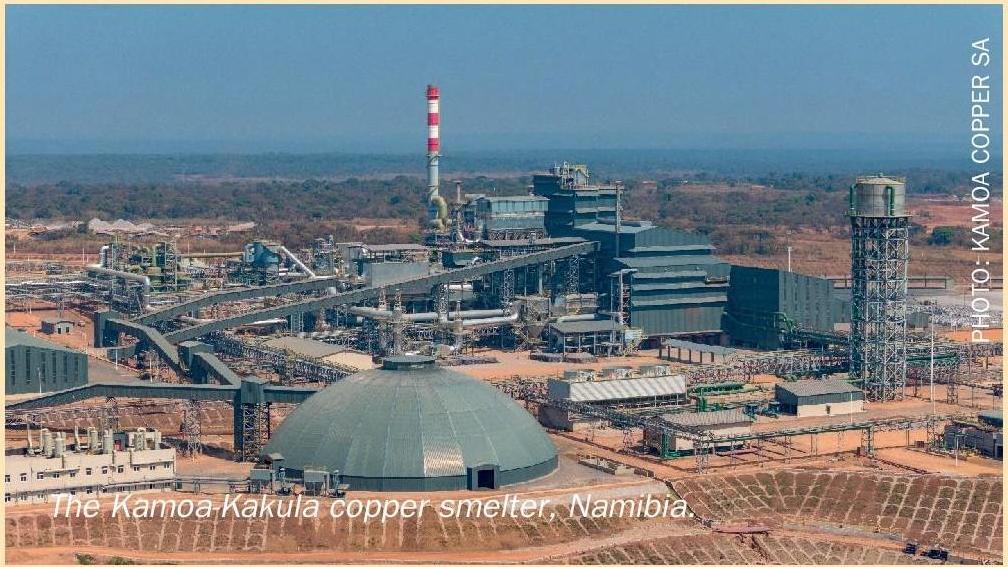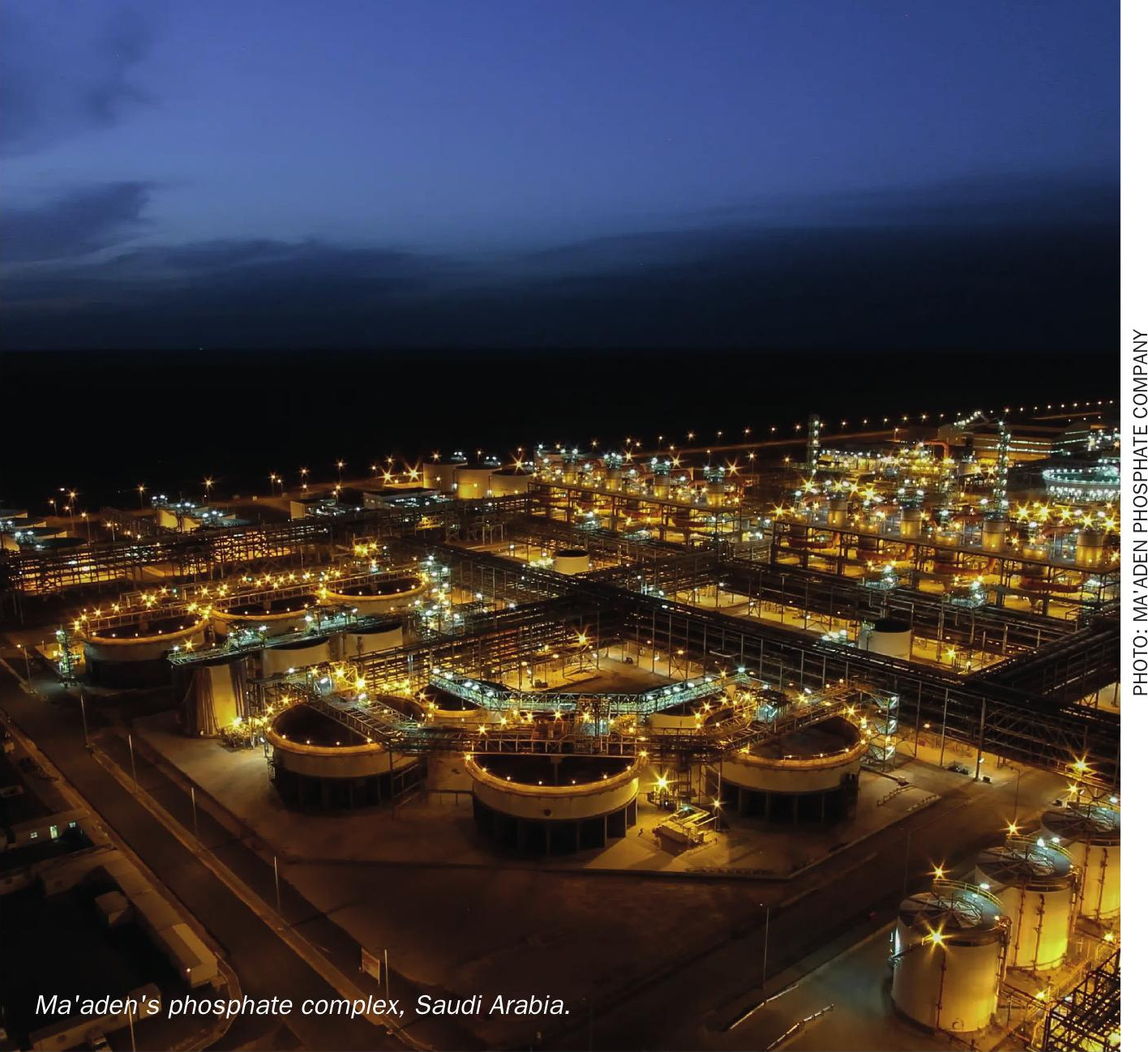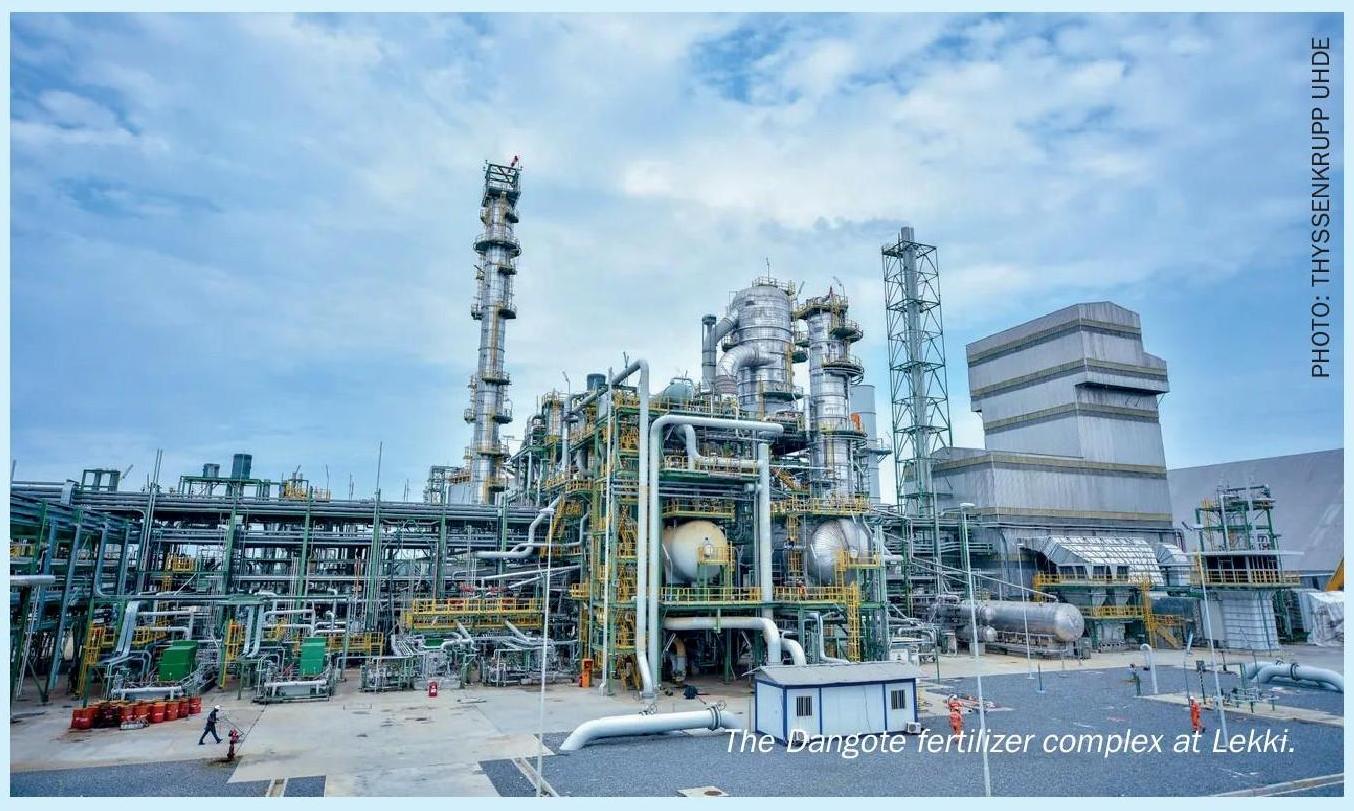Sulphur 390 Sept-Oct 2020
30 September 2020
Sulphuric Acid News Roundup
CHINA
Hengli starts up new alkylation unit
DuPont Clean Technologies has announced the successful startup and performance test of a 300,000 t/a STRATCO® alkylation unit licensed at the Hengli Petrochemical Company’s new refinery complex on Changxing Island in the Harbour Industrial Zone, China. The new alkylation unit enables Hengli to produce high-quality alkylate from a 100% isobutylene feed stream, catalysed by sulphuric acid. This first-of-a-kind unit was developed through DuPont research into the best ways to maximise product octane and minimise end point with this feedstock. Hengli had awarded DuPont the contract for the new alkylation unit as well as a MECS® sulphuric acid regeneration unit in 2015.
The alkylation unit uses patented XP2 technology by DuPont in the STRATCO reactor, designed to improve the acid/hydrocarbon emulsion flow path near the tube bundle heat transfer area of the reactor in order to realise significant process benefits and achieve optimal alkylate product quality.
“DuPont Clean Technologies could not be happier with its ability to enable Hengli Petrochemical Company to meet performance guarantees while processing a feed never before processed in an alkylation unit,” said Eli Ben-Shoshan, Global Business Leader, DuPont Clean Technologies. “It’s a groundbreaking achievement and we’re very pleased to provide innovative technology and services that support the operational and business goals of Hengli.” n
INDIA
Vedanta appeals court ruling on copper smelter
Vedanta Ltd has appealed against the Madras High Court’s refusal to allow the reopening of the Sterlite Copper plant in Thoothikudi, Tamil Nadu. The company’s move follows a verdict that dismissed Vedanta’s petition to reopen its copper smelter and upheld the state government’s decision to shut it down. The closure of the unit has amounted to a monetary loss of around $820 million to the company, and has led to a surge in India’s imports of sulphuric acid. The smelter’s 1.2 million t/a acid plant supplied 30-40% of India’s domestic needs for acid and its closure has turned India into a net importer of sulphuric acid.
The Sterlite plant was closed in May 2018 by order of the Tamil Nadu Pollution Control Board (TNPCB) amid a backdrop of protests against the unit that left 13 people dead when police fired on demonstrators. This PCB order set aside an earlier National Green Tribunal order that allowed the opening of the plant. Vedanta says that emission levels at the sulphuric acid unit were on a par with similar facilities in Europe, and that it had invested in a flue gas desulphurisation system for the smelter, over and above necessary compliance with emission control regulations, as well as monitoring ambient air quality through continuous monitoring stations in and around the plant as well as through a fence line monitoring system.
MOROCCO
OCP to double EMAPHOS production capacity
OCP Group and its partners, Germany’s Budenheim and Prayon of Belgium, are to begin constructing a new purified phosphoric acid (PPA) plant at Jorf Lasfar, through their jointly-owned Euro Maroc Phosphore (EMAPHOS) subsidiary.
This new plant will effectively double EMAPHOS’ annual production capacity to 280,000 tonnes P2 O5 when it enters production during the fourth-quarter of 2022.
Basic engineering was completed in March with the project currently at the detailed engineering stage. Construction is, however, scheduled to start in the first-quarter of 2021. Equipment with long lead-in times will be ordered later this year in advance of construction commencing.
The major expansion project is part of an ambitious strategy by the three EMAPHOS partners to establish a world lead in PPA production. The development will also strengthen OCP’s presence in the speciality phosphate market.
Budenheim, part of massive food conglomerate Oetker, specialises in high-value, phosphate-based food, pharmaceutical and technical products. Prayon, which is jointly owned by OCP Group and the Société Régionale d’Investissement de Wallonie (SRIW), is a world-leading phosphoric acid technology company and speciality phosphate producer.
CHILE
Codelco restarts copper smelter
Codelco has begun to restart the smelter at its Chuquicamata complex. It has also restarted work at the large scale construction projects at its Chuquicamata and El Teniente mines. Work was halted on all three sites in June due to an outbreak of Covid-19 among the workforce. However, the number of positive novel coronavirus cases among its workforce now appears to be falling. To reduce the risk of infection, the number of workers on-site was drastically reduced from March onward, shift cycles have been lengthened and many auxiliary activities, including mine development and maintenance, have been suspended. However, following a spike in the number of cases in June, with more than 3,000 workers infected, unions at Codelco threatened stoppages unless more was done to contain the pandemic, prompting more radical measures. To reduce the risk of infection, Codelco said it will continue to avoid using the airport at Calama, the nearest airport to Chuquicamata, and move workers from outside the city in sealed buses from airports in the nearby cities of Antofagasta and Iquique.
The smelter at Chuquicamata is one of Chile’s largest with the capacity to handle 1.65 million t/a of copper concentrates and processes production from Codelco’s Chuquicamata, Ministro Hales and Radomiro Tomic mines. The complex includes five sulphuric acid plants with a combined capacity of 10,000 t/d of acid (3.3 million t/a).
WORLD
Smelting at lowest level for two years
Global copper smelting activity fell to its lowest level in over two years in July, according to data from satellite surveillance of copper plants. Earth-i, which specialises in geospatial data, launched its SAVANT service late last year, tracking more than 100 smelters representing up to 90% of global production. It publishes a free monthly index of global copper smelter activity, which declined to an average of 41.5 in July, the lowest since March 2018 and down from 50.7 a month earlier. An index value of 50 indicates that the smelters are operating at the average level of the last 12 months.
“The unusually swift decline coincided with a record amount of maintenance outages observed globally and follows a period of unusually low maintenance at Chinese sites relative to seasonal norms,” the company said. Reuters also quoted Guy Wolf, global head of analytics at Marex, which helped develop SAVANT, as commenting: “Global activity levels overall have been propped up in recent months by the extremely strong readings coming out of China. “With China now seeing more maintenance, the weakness globally is starker. What is particularly striking is the sustained period of exceptionally low activity readings from North America. Physical traders will be on the alert in case that leads to strength in premiums in the second half of the year.”
BRUNEI
Hengyi Industries to license alkylation technology
DuPont Clean Technologies has been awarded the contract to supply Hengyi Industries with licensing and engineering for a STRATCO® alkylation unit at the Brunei refinery in Pulau Murara Besar. The new refinery will not only supply the domestic market but also plans to produce refined fuel for export. In order to comply with the China VI standard of 10 ppm sulphur content for fuel, Hengyi commissioned DuPont for an 800,000 t/a (20,750 bbl/d) alkylation unit. The Pulau Muara Besar refinery and petrochemical plant has the capacity to refine 8 million tons of crude oil per year. The alkylation unit will enable Hengyi to generate low-sulphur, highoctane, low-Rvp alkylate with zero olefins that meets the criteria of the China VI standard. Startup is targeted for 2023.
KOREA
India imposes anti-dumping duty on phosphoric acid from Korea
India has imposed a five year anti-dumping duty on phosphoric acid from Korea in order to protect domestic manufacturers from cheap imports. The duty was imposed after the Commerce Ministry’s investigation arm, the Directorate General of Trade Remedies concluded an investigation into alleged ‘dumping’ of “Phosphoric Acid of all grades and concentrations (excluding Agriculture or Fertilizer grade)” from Korea, and concluded that the acid was being sold at a price lower than that in the domestic Korean market. The anti-dumping duty is pegged at $137/tonne.
INDONESIA
New smelters delayed by lockdowns
The development of two $3 billion metal smelters mining firm PT Freeport Indonesia has fallen behind schedule because of the pandemic-related lockdowns, according to the company. The copper concentrate smelter – one of only two being developed in Indonesia – was 5.9% complete in July, behind the target of 10.5%, according according to Indonesia’s Energy and Mineral Resources Ministry mining director general, Ridwan Djamaluddin. Meanwhile, the Freeport’s gold and silver smelter had reached 9.79%, behind the target of 14.3%. The government expects Freeport to finish construction by 2023, in spite of the company’s requests to extend the deadline to 2024. Indonesia’s new Coal and Mineral Mining Law mandates all metal ore must be processed domestically by 2023.





